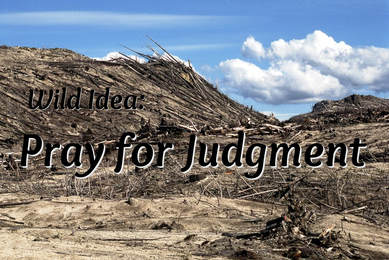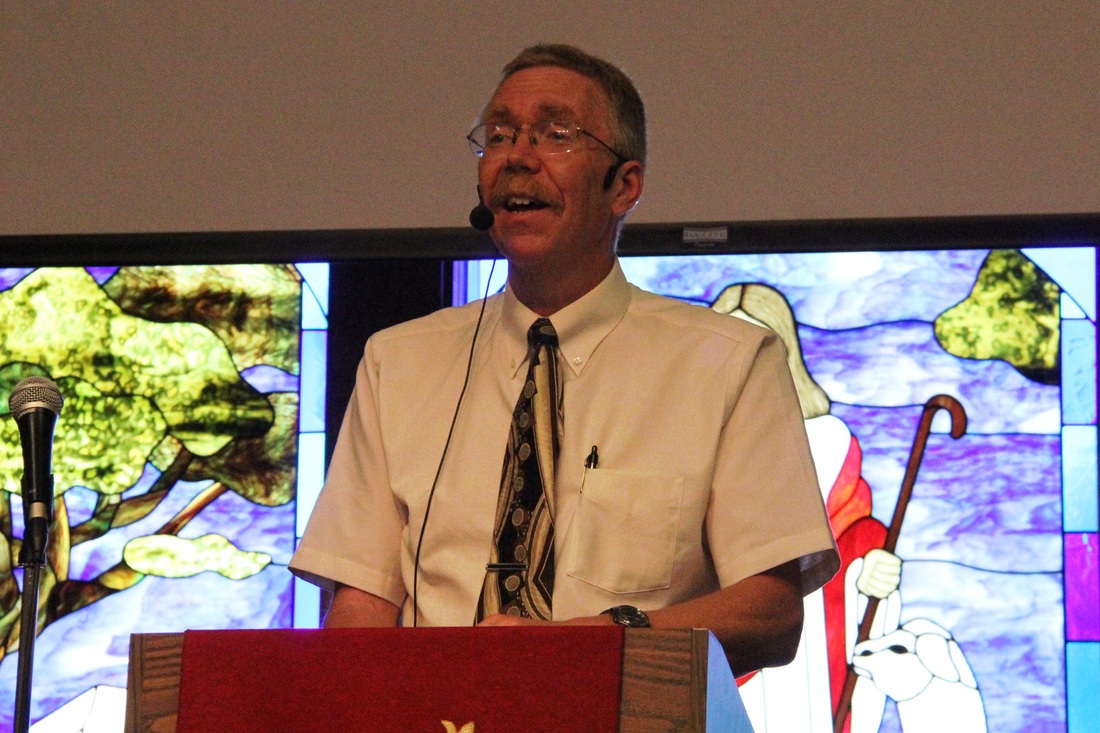
Grace is our constant prayer. That makes sense….. We pray for God to overcome the bad things that happen, /undo the effects of poor decisions. We pray for God to keep away evil and heartaches to disappear. We pray for an easy life with unending joy. Grace is good. Grace is needed. We would not be alive without grace.
But the judgment of God is also GOOD! WILD IDEA: Pray for God’s judgment. God’s judgment means he has expectations/ standards. And we fall short. We sin. If we never ask for God to judge us and resist living by his standards, that means we are trying to bend God to our will, mold God into our likeness. The judgment of God is a gift for those who listen, confess, change.
We are walking through Micah this Summer….
The judgment of God builds character. The world needs strong Christians of conviction, Christians who listen to God’s wise expectations and remain firm in the truth. The world needs Christians who truly confess their sins and find strength in the forgiveness that is freely offered by Jesus Christ.
Micah 1:2 begins with a universal pronouncement: God is taking a seat in the witness stand against ALL people of the earth. We’ll discover in Micah God is the prosecutor, witness and judge. He can do that because he is God. READ.
Attention. God is in the witness stand. The setting is Jerusalem. The time is about 750 years before the birth of Jesus Christ. The people of Jerusalem are spiritually lazy seeing themselves as better followers of God than their brothers in Samaria who have added many foreign gods to their worship practices. The problem: our faith is not graded by God on a curve as if our goal is to be a little bit better in our spirituality than others. If I compare my faith practices to the schmuck down the street I may look pretty good to the world, but I have missed the point of knowing God.
God only cares about my heart, not how well I stack up against others. The comparison game is spiritual laziness!
When I was director of TFC, Bible Quizzing was part of the program ~ the kids memorized portions of the Bible as a team. One of the quizzers was heads and tales above the others…. I went to the national tournament one year as a chaperone. Ryan wanted to practice his memory verses ~ he recited to me the entirety of 1 Peter with one or two minor mistakes. Ryan was amazingly good. Then Ryan shared some insight: “I will never be the top quizzer at the National Tournament,” he said, “because I only work just hard enough to be the top quizzer in our own district back home.” As I watched him in the tournament, I could see he was right.
It’s spiritual laziness if our identity as Christians is defined by righteous practices a little bit more refined than others. The folks of Jerusalem may think they look good next to their brothers in Samaria, they may see themselves superior to heathen nations around them, but Micah is about to call the folks in Jerusalem to account in terms of their own devotion to God.
Micah starts out with a universal call to the whole earth: God descends from his throne testify against all nations, all people. Who will listen? Who wants to be have their heart examined? One of the themes in Micah, a constant refrain: LISTEN, HERE, SEE, LOOK… I imagine the people of Jerusalem hearing Micah and saying, YES, God, come and bear witness against THEM. “I’m a pretty good Christian? Come judge the world Lord. Take the witness stand against the United States. I have nothing to fear because I am pretty good.” The people of Jerusalem are about to discover Micah is throwing a boomerang. The judgment of God will return!
Micah 1:3-4 emphasizes the grandeur of God and the entry to earth. READ. The Sovereign God is like a man who conquers Everest “treads on the heights” and then his presence causes rocks and glaciers to melt. Micah underlines the Supernatural power of God! God coming as a witness is grace; God could have chosen to pronounce judgment of guilt and a sentence of death. He has no need to be a witness…. The reason the judgment of God is a form of grace is that by Him testifying to our guilt, we can hear and confess and change. The Judgment of God is good.
The boomerang returns. READ Micah 1:5. The prophetic words of Micah are turned back on Jerusalem. Micah begins in 1:2 by saying God is coming to bear witness against the earth, but the boomerang returns and Micah reveals the judge of all the earth is also the judge of Israel. God has high standards and great expectations. Judgment is good so we can know what the Lord wants of us, how we are to live, who we are to worship.
It is common for people to criticize Christians and other people by saying, “Do not judge me.” I agree 100% it is wrong to judge others if the point is that anyone who judges another better make sure their own house is in order. One thing I’ve noticed: people who proclaim they do not want to be judged for their decisions, seldom want God to judge them either. If you are going to live by a biblical principle, go the whole way and understand God is the ultimate judge. INVITE God’s judgment. Measure your life against entirety of God’s word and the prompting of the Holy Spirit.
Micah boomerangs God’s judgment on the people of Jerusalem and pronounces the God is coming to bear witness against them. God is concerned with the sins of Judah and Israel (Jacob is another name for a unified Israel). Micah is not specific about the exact sins, but he pinpoints the capitals of Judah (Jerusalem) and Israel (Samaria). Micah is laying responsibility on the governments for leading the nations into sin…
The judgment of God: READ Micah 1:6-7. Practices offensive to God will be destroyed. Judgment is to purify. Judgment is good because it gets rid of that which is contrary to our greater purpose of knowing God. Anything that leads us away from God, away from worship, away from a relationship with God needs to go…..
In Micah 1:5 the text mentions “high places” ~ pagan places of worship and sacrifice. The people were supposed to tear them down but that did not always happen and they kept the worship of other gods alive. The people were blind to the high places… I often wonder about my blind spots… We have a lot of “harmless” threads of practices contrary to God: astrology, wisdom of other religions, private superstitions…. Micah 1:6 mentions idols, images and prostitutes. Sacred temple prostitution was promoted as a way to achieve spiritual ecstasy. We don’t glorify sexuality in our world, huh!
The sins of Samaria and Jerusalem is to compromise true worship of God, to promote other gods and practices that are contrary to god. The sin is to trample on the weak….
BTW, about prostitutes. Back in my seminary days in my ethics class the professor, Lewis Smedes, often brought in real people who represented the topic under discussion. He brought in a former prostitute ~ the typical prostitute is a young teenage girl on the street. Not glamorous. In truth, the vast majority of prostitutes are victims ~ when Micah talks about the prostitutes I believe the indictment is more against the men/religious leaders who are exploiting the girls/woman…, the indictment is not against the prostitutes…, I think we can expand the application to all the vulnerable of society. God is saying to NOT exploit the weak, the children, the vulnerable, anyone who has less power, less position, than me….
God is our prosecutor. God is our witness. God is our judge. Ask him to expose our contrary practices that distance us from Him. Let’s elevate the weak and vulnerable. Ask him to judge us, purify us, cleanse us from all sin and unrighteousness. Let’s not point our fingers at others asking God to judge THEM, but to boomerang the judgment back to us and give sight to our blindness.
Micah 1:8-9 expresses personal insight into the mind of the prophet. READ. Here is what is wonderfully awesome about Micah: he cares passionately about the people. Micah is not only a prophet, but he is a pastor: he cares. Pronouncing God’s word of judgment is not easy: even though judgment is good, it is like putting gold into a furnace to be refined: the resulting pure gold is good but the process is harsh. READ Mic. 1:8. The old saying is true: “Nobody cares how much you know till they know how much you care.” Micah cares. To understand what Micah is saying, it is important to understand cultural differences. I care deeply (but imperfectly) about people…, but if I were to act the way Micah acts you’d lock me up. It’s a difference of culture.
In Micah’s day and in many cultures around the world today grief is expressed visibly ~ Micah talks about weeping and wailing and howling and moaning. In the first translation of Micah 1:8 I read to prepare for this message, the words were actually “utter a cry of mourning as loud as jackals, a lament as shrill as ostiches.” Why that had ostrich and NIV has owls I don’t know … probably an ambiguous Hebrew word for a bird… I went to Youtube so I could listen to the “a lament as shrill as ostiches.”…(NOTE: video posted at end of these notes). In our culture, if I start to shrill like an ostrich you’ll declare me to be nuts. Not Micah though. Cultures. (I officiated once at a Lummi funeral….)
We may not be as expressive in our grief, we may look stoic and quiet, but I take a backseat to nobody in the caring department. For me, I would write verse 8 something like, “Because of this I will weep, I will cry, I cannot get my mind off of how hard this is, I lose sleep at night.” People know when you care no matter how you express it.
Micah 1:9 reaffirms the necessity of judgment and the certain results. The day is coming when all people will be held to account. The day is coming when purification will come. Judgment is good, but it is hard.
Pray for the Lord to judge our community, our nation. But pray also for the Lord to Judge you and me. Judgment is not just for others…. Measure your faith by God’s standards, not by comparing yourself to others. Hear the words of judgment, confess, and change. May we deeply love those who come under the conviction of God’s judgment. The judgment of God is good so we will have the opportunity to be refined and grow in our faith and trust of the Lord. Amen.


 RSS Feed
RSS Feed